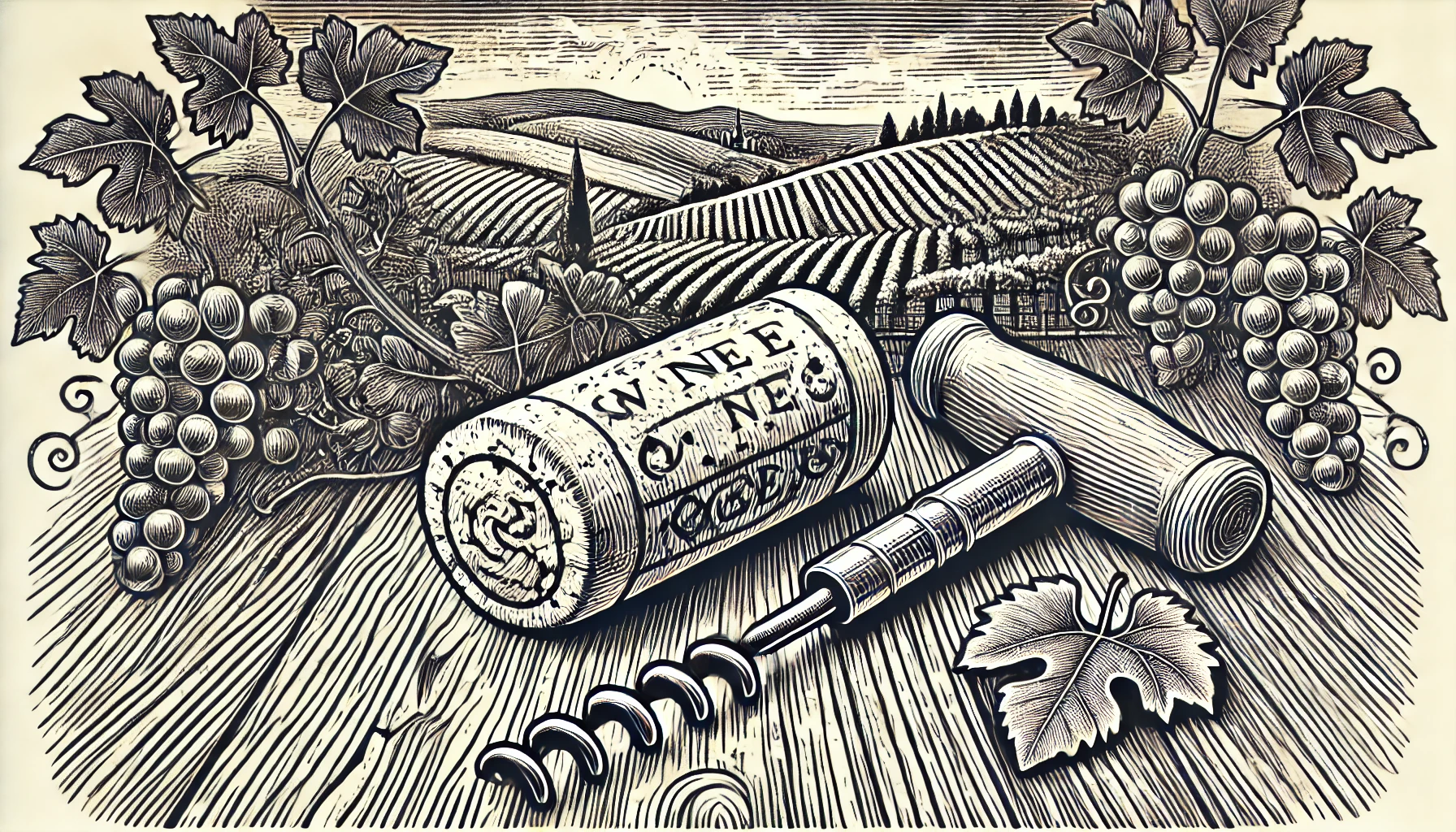
A cork is a natural stopper used to seal wine bottles, made primarily from the bark of the cork oak tree (Quercus suber). This tree is native to the Mediterranean region, especially Portugal, which produces the majority of the world’s cork. The material is lightweight, compressible, and highly elastic, which makes it ideal for sealing wine bottles. It helps prevent air from entering the bottle, ensuring the wine can age properly without spoilage or oxidation.
Cork stoppers come in different sizes and types. The traditional cork is cut from a single piece of bark, providing a natural, high-quality seal for wine bottles. Other types, such as agglomerated corks, are made from smaller pieces of cork that are compressed together and are often used in cheaper wines. It has been the preferred choice for sealing wine bottles for centuries due to its ability to expand slightly once inside the bottle neck, creating a tight seal. Despite the rise of synthetic corks and screw caps, natural cork remains widely used, especially for premium and aged wines.
One of the potential issues with natural cork is “cork taint,” which occurs when the cork becomes contaminated with a compound called TCA (trichloroanisole). It can ruin the flavor and aroma of wine, giving it a musty, moldy taste. However, many winemakers still choose cork because of its traditional appeal, its role in allowing wines to breathe over time, and its sustainability, as its harvesting does not harm the tree.
Curious about more wine terms and insights? Visit our Wine Wiki section and explore the basic wine terms for expert definitions and tips!